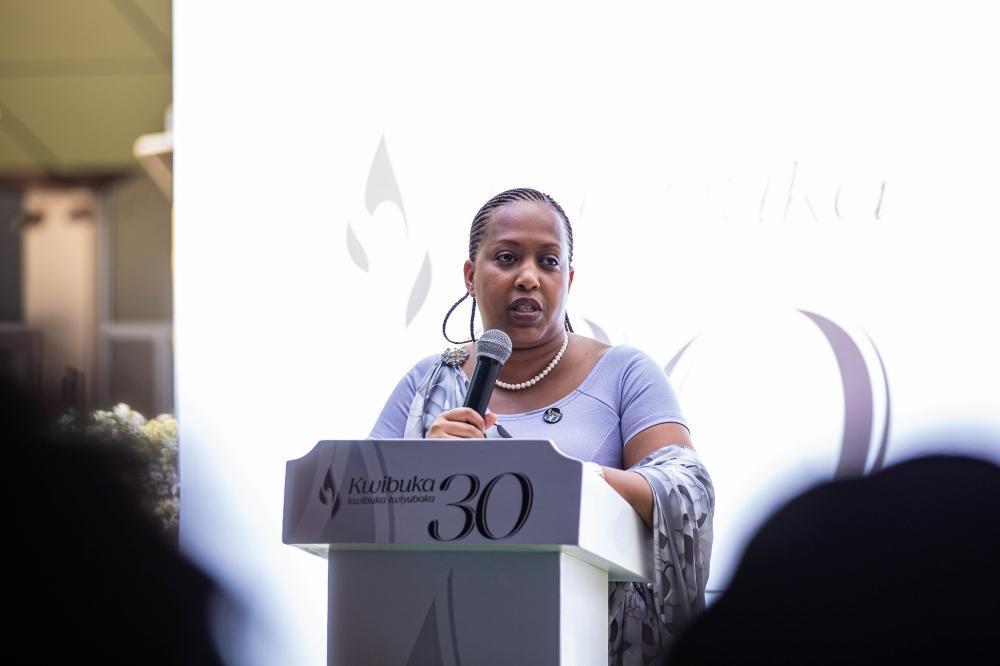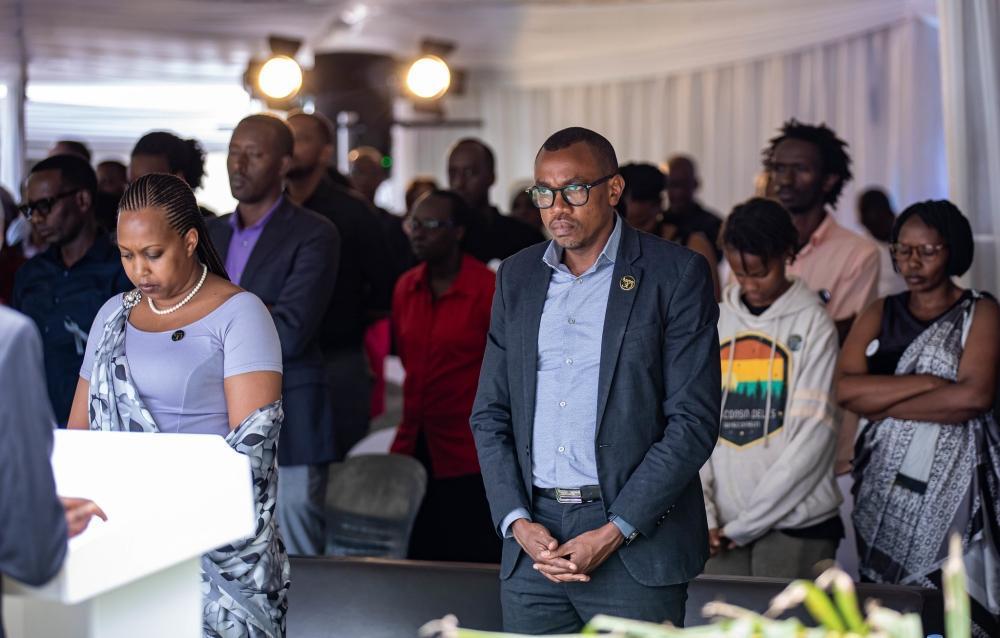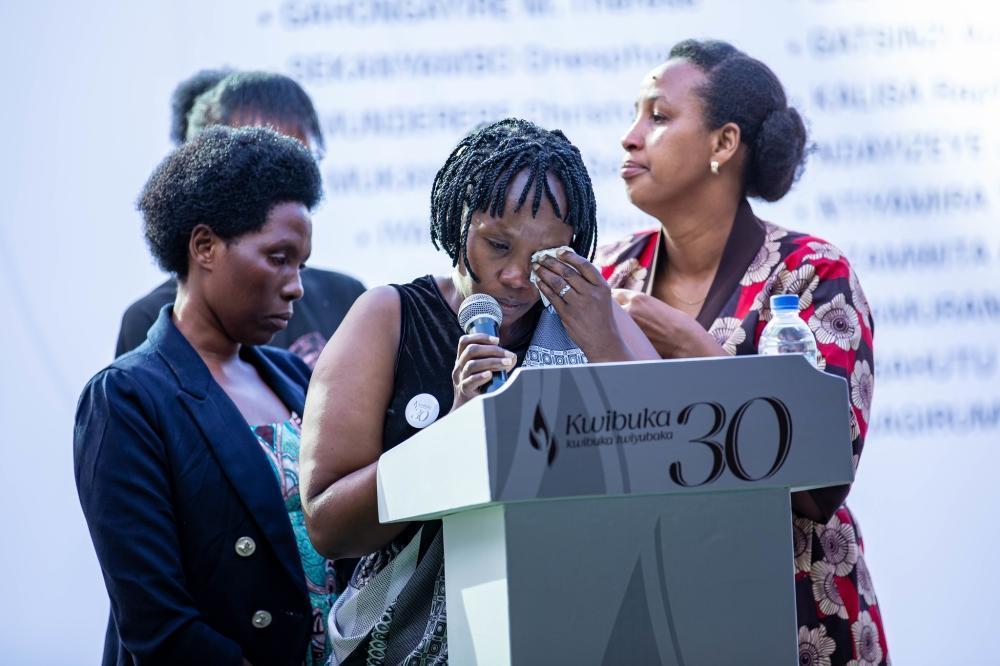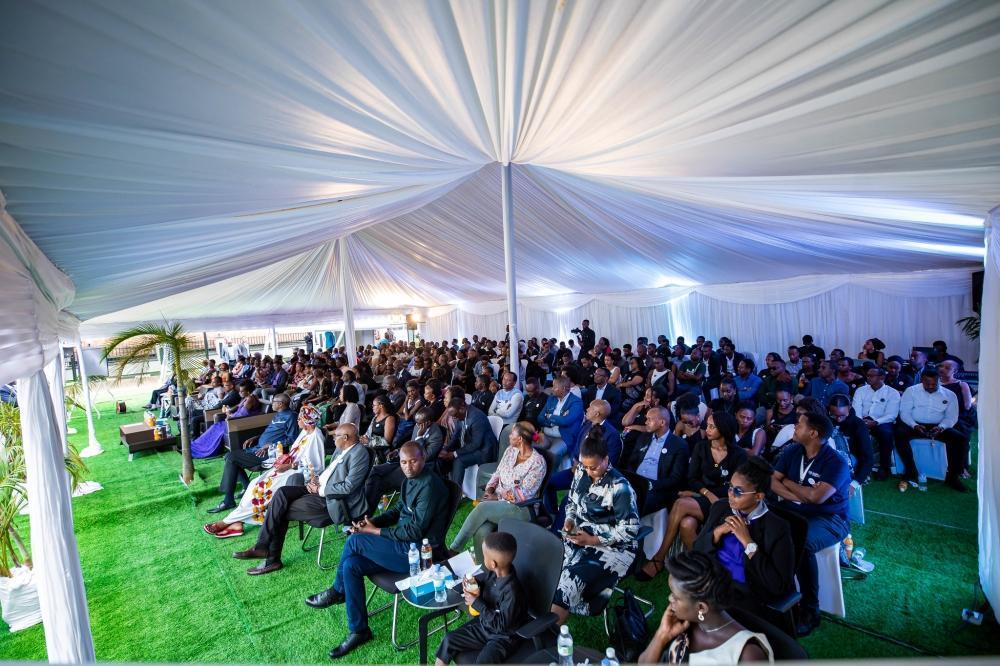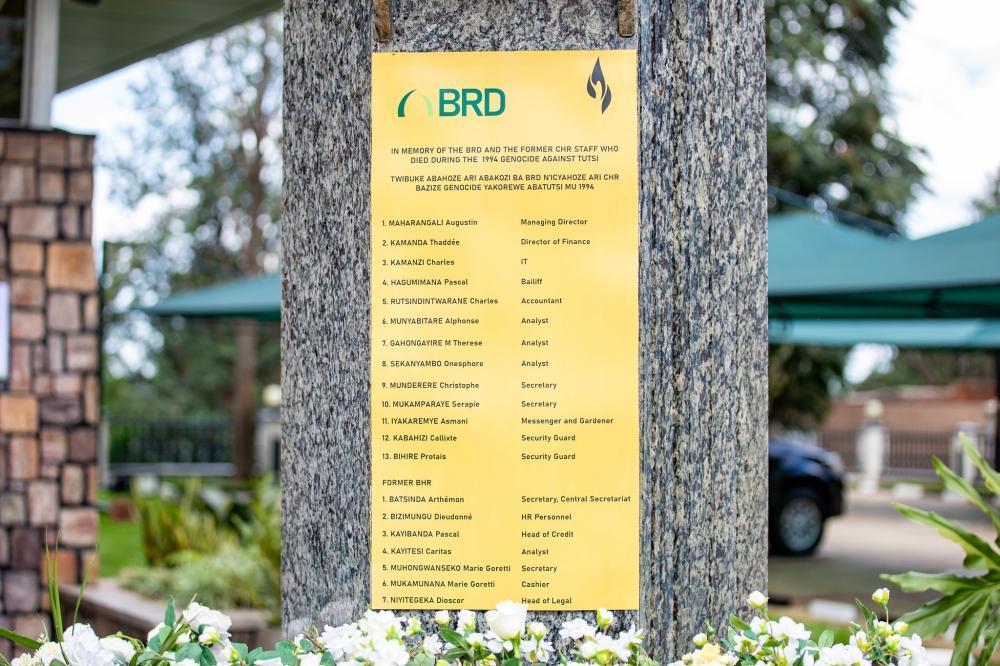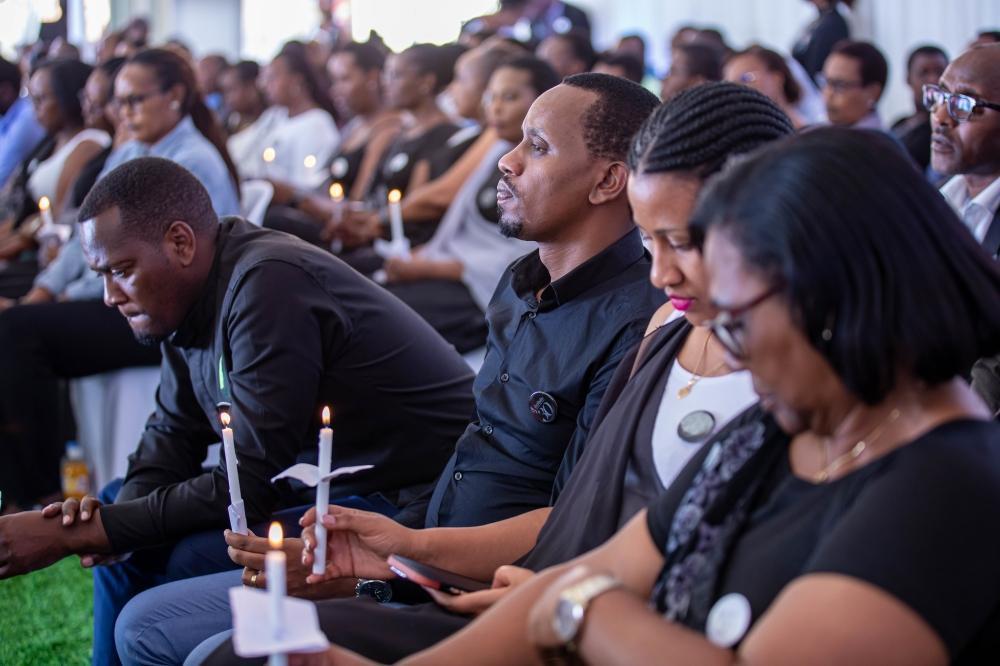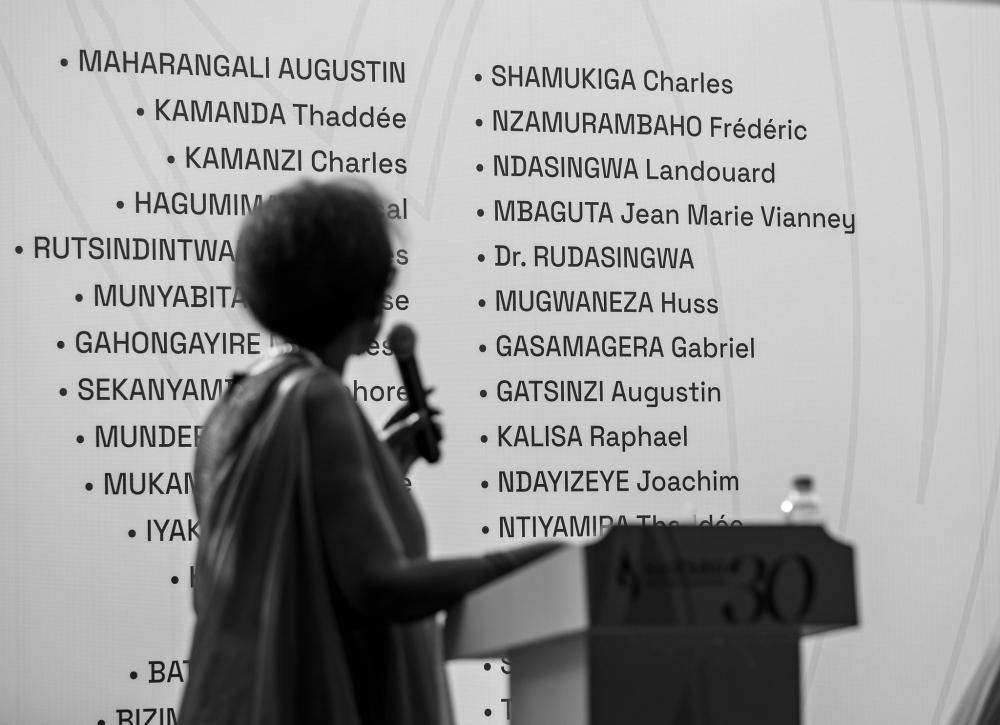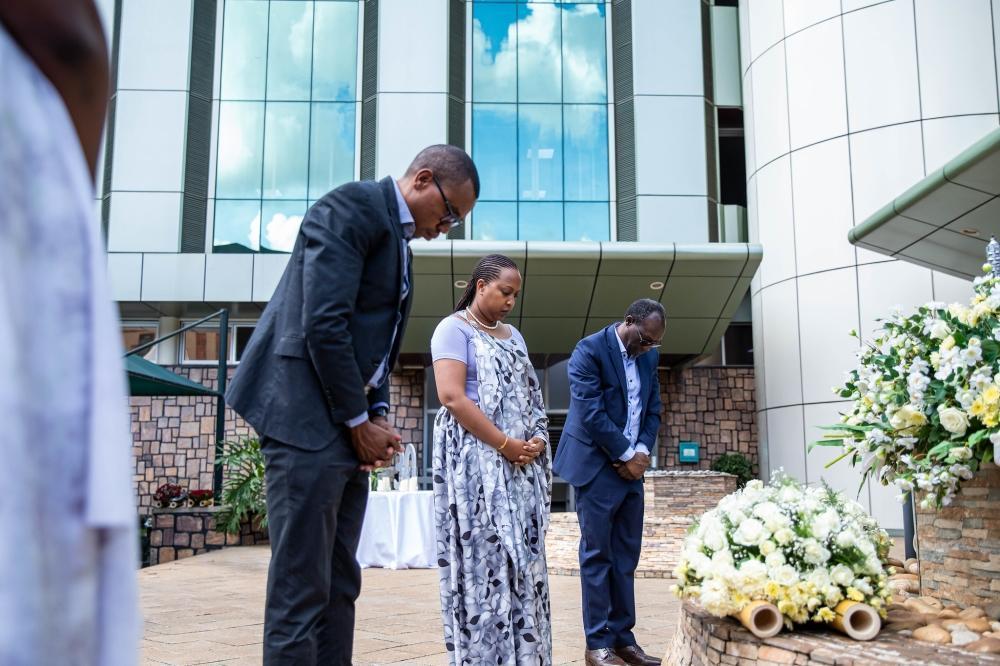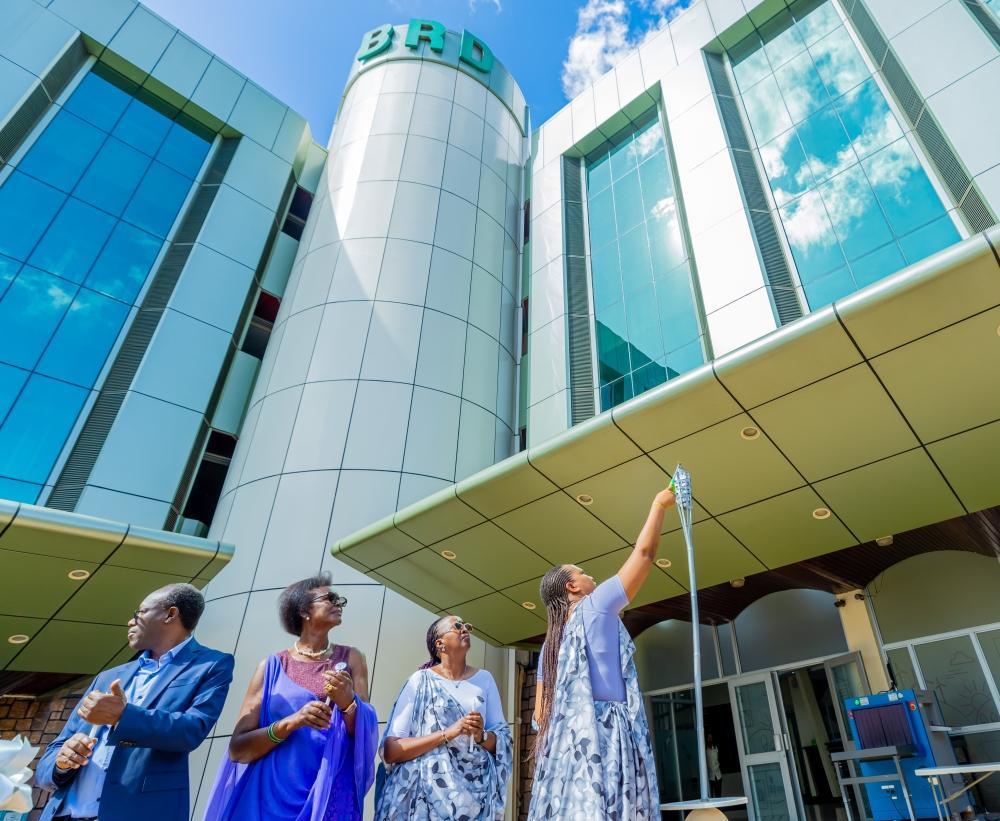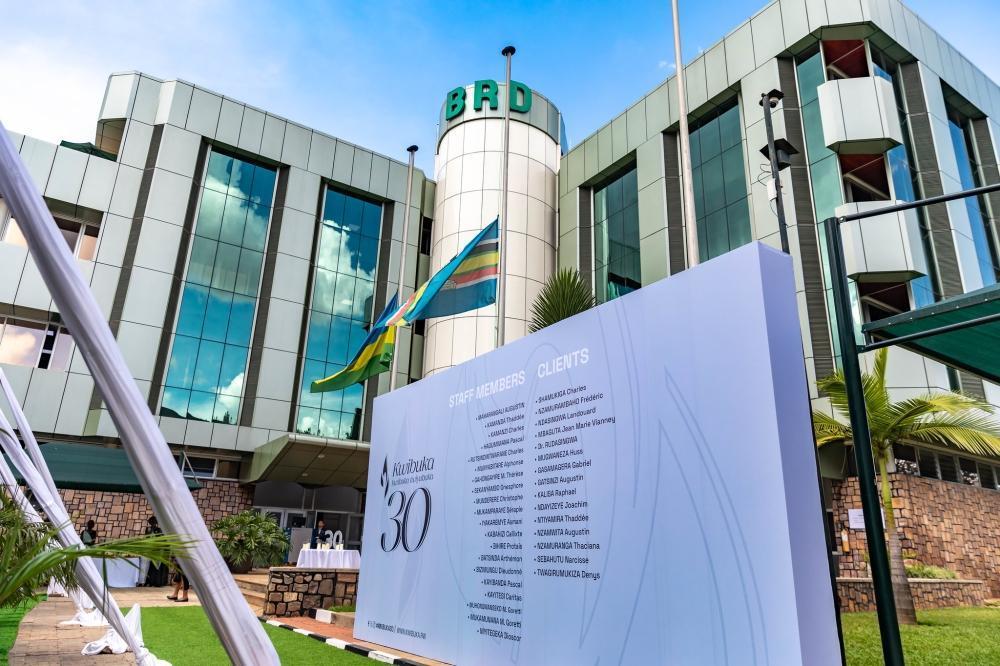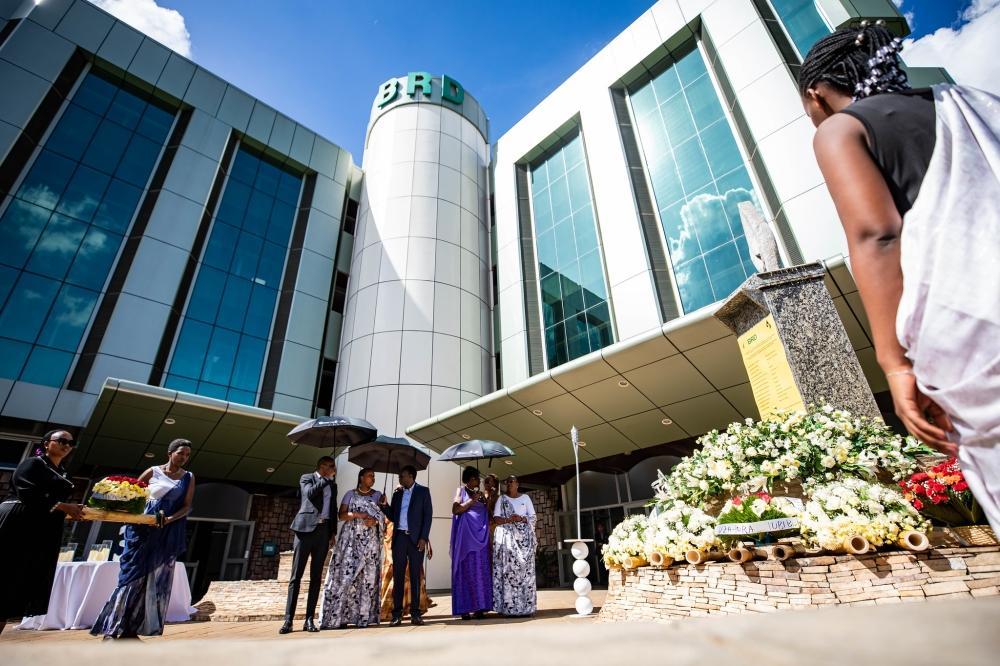
Africa-Press – Rwanda. The Development Bank of Rwanda (BRD), on Friday, April 12, once again held a commemoration event at its headquarters in Kigali to remember and honour former members and clients of BRD and Caisse Hypothecaire du Rwanda killed in the 1994 Genocide against the Tutsi.
Their commemoration programme included activities such as displaying names and photographs of the staff members and clients of BRD killed during the Genocide. A solemn moment was marked with the lighting of the ‘Flame of Remembrance’ at the bank’s premises.
Pitchette Kampeta Sayinzoga, the CEO of Rwanda Development Bank (BRD), emphasized the crucial role of educating youth about history, particularly the tragic legacy of the genocide.
Pitchette Kampeta Sayinzoga, the CEO of Rwanda Development Bank (BRD), emphasized the crucial role of educating youth about history, particularly the tragic legacy of the genocide.
She said: “Teaching history to young people is an important task for many reasons. Central to this mission is the recognition that the perpetrators of the genocide were often young individuals. Youth can wield both positive and negative endeavours.”
She underscored the necessity of confronting the past to safeguard the future, cautioning that, “If we don’t talk about what happened, if we don’t teach history, it is possible that the youth of Rwanda will be used in bad activities. Today we are working with youth associations such as PLP, Our Past Initiative, GAERG, and others, with the focus on imparting testimony and historical truth.”
Mourners observing a moment of silence to pay respects to victims who were former staff of the bank
Kampeta highlighted that the youth play a central role in combating denial, particularly through their engagement on social media platforms. Additionally, she underscored their significance in ensuring the preservation and continued remembrance of Rwanda’s history.
Father Innocent Consolateur of Saint Michel Cathedral reflected on Rwanda’s history and emphasized on the importance of remembrance for personal and collective identity. He asserted that forgetting one’s history leads to a loss of self-awareness, emphasizing that history is integral to understanding oneself. He dispelled the notion that remembering fosters hatred, affirming that it is, instead, a means of grounding oneself in the past to navigate the present and future.
Anne Marie Kantengwa, a representative of the genocide survivors, expressed gratitude towards BRD for organizing the commemoration event dedicated to remembering clients killed during the genocide against the Tutsi. She conveyed her deep honour in paying tribute to the victims, acknowledging their tragic fate with a newfound sense of solace and openness.
The commemoration event to remember and honour former members and clients of BRD and Caisse Hypothecaire du Rwanda killed in the 1994 Genocide against the Tutsi.
Kantengwa also expressed satisfaction for the support provided by the government to genocide survivors.
Louis de Monfort Mujyambere, the Vice president of Ibuka, the umbrella organisation of genocide survivors’ associations, highlighted profound significance of commemorating as it serves as a tribute to the victims of the genocide against the Tutsi.
“Today, we pause to remember not only the employees and clients of BRD who played pivotal roles in nation-building but also all those who perished in the 1994 genocide against the Tutsi. Through commemoration, we bestow value and honour upon their memories, recognizing their enduring impact on our collective history,” he said.
“Ibuka extends a heartfelt appreciation to the government for recognizing the importance of commemorating. Additionally, we express gratitude to the organizers of commemorative events both locally and globally. It is through remembrance that Rwandans find unity, solidarity, and a shared commitment to ensuring that the lessons of history are never forgotten,” he added.
Dalia Mukanyirigira’s testimony
Dalia Mukanyirigira, a sister to the late Pascal Kayibanda, a former member of BRD killed during the genocide, said the latter “was like a parent to us since our parents were a bit older.”
Dalia Mukanyirigira, a sister to the late Pascal Kayibanda, a former member of BRD killed during the genocide, sharing her testimony
“In 1990, when I was in primary school there was always ethnic division among students. Pascal resided in Kigali and we lived in Murambi. We always communicated with Pascal through our neighbour’s phone. When I started secondary school, I was in a private school since it was hard to go to a government school.
“At the beginning of second term, the principal called me into his office. He was really always menacing, so I was scared when I headed there. As soon as he motioned for me to sit down, I began inquiring about what I had done. He quickly chased me away and instructed me to go to the school bursar since he was a family member, so he could tell me what I had done.”
The bursar then informed her that the reason she was expelled was that Murambi Prefecture had so many school children, “particularly in our sector, which was Gakenke at the time, and that there was an issue.”
“Afterwards, in 1994, since the genocide started when we were in the holidays, Pascal called to inform me that my elder sister would not be visiting over the holidays, but perhaps she might if God wills. Those were his last words to me.”
“After some time, I visited my brother and older sister in Kigali. I went to his residence and discovered other people living there. They were conversing in languages I couldn’t understand, so I didn’t ask them anything. Instead, I went to visit his neighbours and greeted them, they were surprised that I was still alive. The neighbour, a woman, broke down in tears as she informed me what had happened to my brother.”
It was the woman who explained to her how killers showed up at her brother’s home early one morning, at around 6:00 am. The neighbour heard them knocking on his door, saying, “The day we told you about has come.”
As recounted to her, the killers were three men, wielding traditional weapons. They had a weapon which they used to call “nta mpongano” and they used to beat Pascal.
A cudgel, a short stick, usually made of wood, wielded as a weapon then commonly called “Nta mpongano y’umwanzi,” literally meaning “No mercy on the enemy”, was one of the weapons widely used by Interahamwe militia to kill the Tutsi.
His wife screamed, saying, “You killed my husband”. Another killer immediately started beating Pascal’s wife. The killers kept on beating the couple’s lifeless bodies with pangas even though they were already dead, the neighbour recounted.
“We cannot kill this one without raping her,” one of the killers muttered “as he entered my sister’s sleeping room and seized her.”
Afterwards, the killers moved their dead bodies to the street. “A truck would then arrive and remove the bodies, though I’m still not sure where they were taken till today.”
“One of the preparators took my older sister, and his wife didn’t want him to rape her. When the man went outside, the woman hid my older sister. When things got complicated, they had to flee with my elder sister. I’m not sure what happened, but I think that my sister did not die in Rwanda.”
The commemoration event to remember and honour former members and clients of BRD and Caisse Hypothecaire du Rwanda killed in the 1994 Genocide against the Tutsi.
Their commemoration programme included activities such as displaying names and photographs of the staff members and clients of BRD killed during the Genocide.
Officials pay tribute to victims of the Genocide against the Tutsi at during BRD’ s commemoration event
Pitchette Kampeta Sayinzoga, the CEO of Rwanda Development Bank (BRD) lit the Flame of Remembrance during the event

For More News And Analysis About Rwanda Follow Africa-Press

